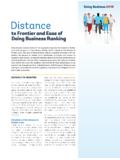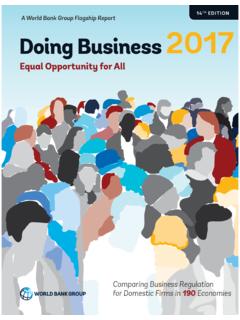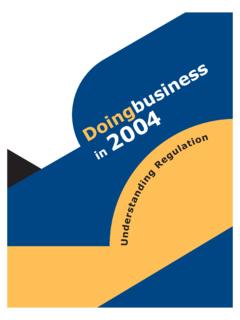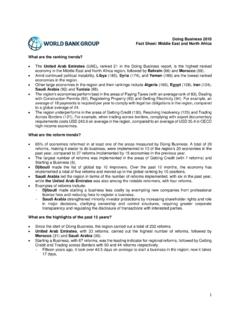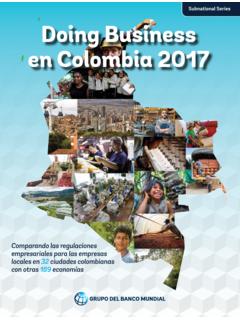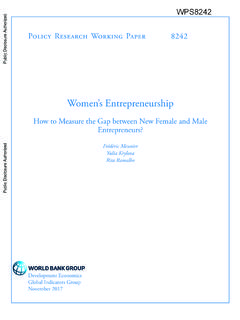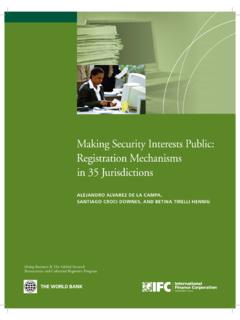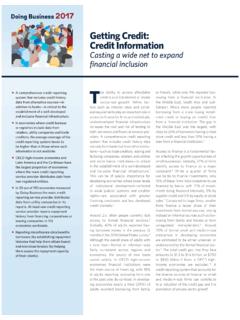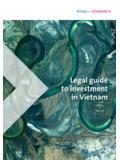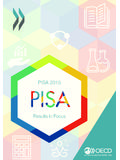Transcription of © 2007 The International Bank for Reconstruction …
1 2007 The International bank for Reconstruction and Development / The World bank 1818 H Street NW. Washington, 20433. Telephone 202-473-1000. Internet E-mail All rights reserved. 1 2 3 4 5 09 08 07 06. A copublication of the World bank and the International Finance Corporation. This volume is a product of the staff of the World bank Group. The findings, interpretations and conclusions expressed in this volume do not necessarily reflect the views of the Executive Directors of The World bank or the governments they represent. The World bank Group does not guarantee the accuracy of the data included in this work.
2 Rights and Permissions The material in this publication is copyrighted. Copying and/or transmitting portions or all of this work without permission may be a violation of applicable law. The World bank Group encourages dissemination of its work and will normally grant permission to reproduce portions of the work promptly. For permission to photocopy or reprint any part of this work, please send a request with complete information to the Copyright Clearance Center Inc., 222 Rosewood Drive, Danvers, MA 01923, USA; telephone: 978-750-8400; fax: 978-750-4470; Internet: All other queries on rights and licenses, including subsidiary rights, should be addressed to the Office of the Publisher, The World bank , 1818 H Street NW, Washington, DC 20433, USA; fax: 202-522-2422; e-mail: Additional copies of doing business 2008, doing business 2007: How to Reform, doing business in 2006: Creating Jobs, doing business in 2005: Removing Obstacles to Growth and doing business in 2004: Understanding Regulation may be purchased at ISBN: 978-0-8213-7231-9.
3 E-ISBN: 978-0-8213-7232-6. DOI: ISSN: 1729-2638. Library of Congress Cataloging-in-Publication data has been applied for. Contents doing business 2008 is the fifth in a series of annual Overview 1. reports investigating the regulations that enhance busi- ness activity and those that constrain it. doing business Starting a business 9. presents quantitative indicators on business regula- Dealing with licenses 14. tions and the protection of property rights that can be compared across 178 economies from Afghanistan to Employing workers 19. Zimbabwe and over time. Registering property 24.
4 Regulations affecting 10 stages of a business 's life Getting credit 29. are measured: starting a business , dealing with licenses, employing workers, registering property, getting credit, Protecting investors 34. protecting investors, paying taxes, trading across bor- Paying taxes 39. ders, enforcing contracts and closing a business . Data in Trading across borders 44. doing business 2008 are current as of June 1, 2007. The Enforcing contracts 49. indicators are used to analyze economic outcomes and identify what reforms have worked, where, and why. Closing a business 54. The doing business methodology has limitations.
5 What to expect 59. Other areas important to business such as a country's proximity to large markets, the quality of its infra- References 63. structure services (other than those related to trading Data notes 67. across borders), the security of property from theft and looting, the transparency of government procurement, Ease of doing business 82. macroeconomic conditions or the underlying strength doing business indicators 87. of institutions are not studied directly by doing Busi- Country tables 103. ness. To make the data comparable across countries, the indicators refer to a specific type of business generally Acknowledgments 163.
6 A limited liability company operating in the largest business city. The methodology for 3 of the doing business topics changed for doing business 2008: dealing with licenses, employing workers and enforcing contracts. See Data notes for details. Three new topics not paying bribes, opportunities for women and infrastructure are under development. The analysis is described in What to expect. 1. Overview This year Eastern Europe and the former Soviet Union dominate the list of top reformers in 2006/07, with Croa- surpassed East Asia in the ease of doing business (figure tia, FYR Macedonia, Georgia and Bulgaria reforming ).
7 Several of the region's countries have gone even the most. Croatia is a top reformer for the second year further, surpassing many Western European economies. running, Georgia for the third. Estonia, the most business friendly of the former social- Many others are reforming too. Two hundred reforms ist bloc, ranks 17 on the ease of doing business . Georgia in 98 economies were introduced between April and Latvia are also in the top 25. 2006 and June 2007. Reformers simplified business regu- The result is a boom in new businesses. Georgia lations, strengthened property rights, eased tax burdens, now has 15 registered businesses per 100 people (same increased access to credit and reduced the cost of export- as Malaysia).
8 The Czech Republic and Slovakia have 13 ing and importing. (same as Singapore). Estonia and Poland have 12 (same Across regions, Eastern Europe and Central Asia as Hong Kong, China). Some of these new businesses reformed the most, followed by South Asia and rich have become global leaders in their field for example, countries (figure ). Latin America reformed the least. the Estonian-born software company Skype and the The pickup in South Asia was led by India, which rose Czech carmaker koda. 12 ranks on the ease of doing business . The slowdown in As in previous years, Eastern European countries Latin America could be a result of a busy election year: FIGURE FIGURE Which region is the most business friendly in 2007?
9 Most reform in Eastern Europe & Central Asia again Ranking on the ease of doing business (1 178) EACH LINE SHOWS Countries that made at least one positive reform in 2006/07 (%). AVERAGE THE RANK OF ONE. RANK COUNTRY IN THE REGION Eastern Europe OECD & Central Asia 79. high income 22. Eastern Europe South Asia 63. & Central Asia 76. OECD 63. East Asia 77 high income & Pacific Middle East Latin America & North Africa 59. 87. & Caribbean Sub-Saharan Middle East Africa 52. 96. & North Africa East Asia & Pacific 46. South Asia 107. Latin America 36. Sub-Saharan 136 & Caribbean Africa Source: doing business database.
10 Source: doing business database. 2 doing business 2008. TABLE The top 10 reformers in 2006/07. Starting Dealing with Employing Registering Getting Protecting Paying Trading across Enforcing Closing a Economy a business licenses workers property credit investors taxes borders contracts business Egypt . Croatia . Ghana . Macedonia, FYR . Georgia . Colombia . Saudi Arabia . Kenya . China . Bulgaria . Note: Economies are ranked on the number and impact of reforms. First, doing business selects the economies that reformed in 3 or more of the doing business topics. Second, it ranks these economies on the increase in rank on the ease of doing business from the previous year.
